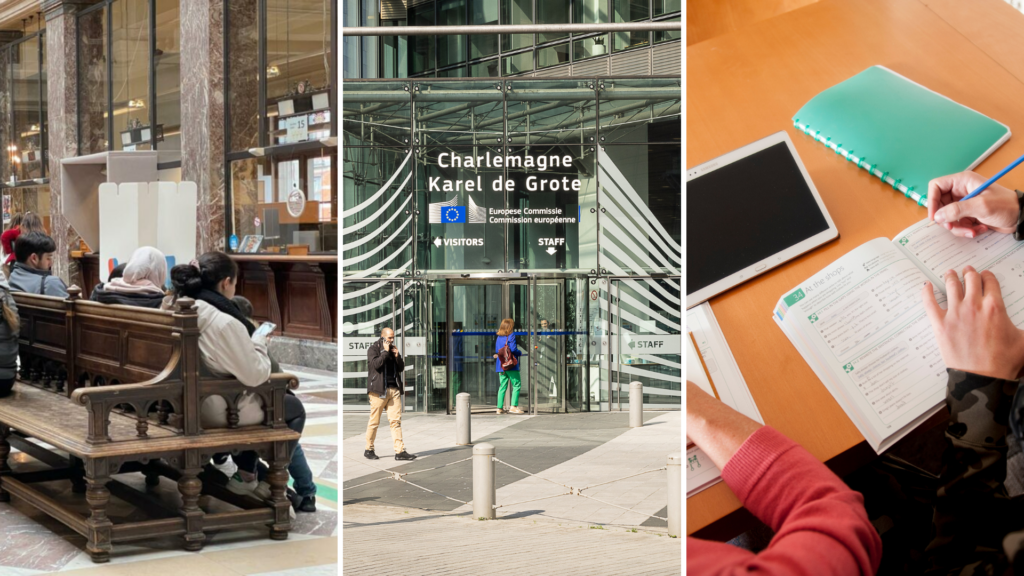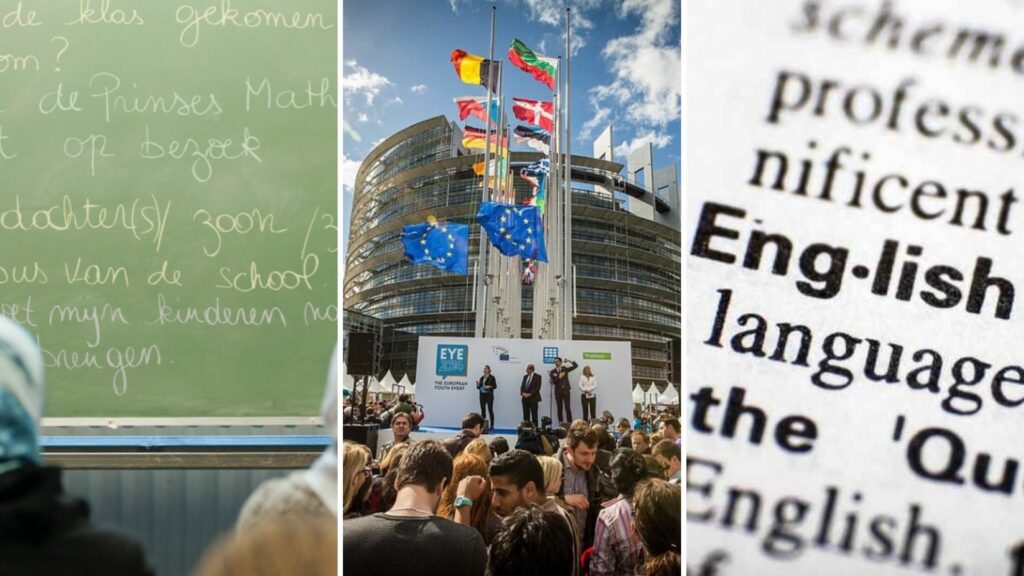English is on the rise in Brussels as new data shows that almost half of the Capital Region's citizens speak the language fluently – confirming that the capital is no longer dominated by French.
"This year, we registered 104 different languages spoken in the region – and this is most likely an underestimation of the effective language reality in Brussels," Mathis Saeys, a VUB researcher who worked on the Language Barometer, told The Brussels Times.
Remarkably, in the 2001 Barometer, just 74 languages were recorded; in just over 20 years, at least 30 languages were added to the Brussels' mix. This is not surprising, as more than one in three people currently living in Brussels (36.9%) are non-Belgian, and around a quarter of residents are EU citizens.
Multilingualism is therefore not just a nice party trick for people, but rather a necessity if they want to communicate with those around them. "As so many languages are spoken, Brussels residents have to use different languages in their everyday interactions."
Here, English is coming in handy – particularly among younger generations. While it is primarily a school language and less of a family language, English is spoken increasingly among international residents and Belgians alike.
This has led to a debate about weaving it into the administrative fabric of the region, with Brussels Minister for Multilingualism Sven Gatz repeatedly arguing that the non-official third language should become an official one in Brussels, alongside French and Dutch.
"It is clear English can and should have a place in the legal, administrative and institutional framework of Brussels."
Want to find out more? Read the full article by my colleague @LaurenWalkerH. What do you think? Let @Maajtee know.
Belgium in Brief is a free daily roundup of the top stories to get you through your coffee break conversations. To receive it straight to your inbox every day, sign up below:
1. Eurostar hints at new destinations as it expands fleet for first time in ten years
High-speed railway operator Eurostar has announced it is working on "thoroughly renewing and expanding its fleet" with up to 50 new trains, while also hinting at extending its services to other destinations. Read more.
2. Brussels' linguistic evolution: English gains ground as French declines

The internationalisation of Brussels is increasingly reflected in the languages spoken in the region. The latest Language Barometer shows almost half of the region's citizens speak English fluently and Dutch speakers are on the rise, while French is losing ground. Read more.
3. 'Proportionate restriction': ECHR upholds ban on Islamic veil in secondary education
The European Court of Human Rights (ECHR) has ruled that it upholds the ban on hijabs in Flemish Community secondary schools. It rejected the applicants' complaint that the ban is incompatible with freedom of religion. Read more.
4. Dubai criminal paradise: Traffickers wanted in Belgium making millions selling UAE property
Several leaders of drug gangs have been able to buy, rent and sell villas and flats in Dubai in recent years, making hefty profits, despite being wanted, prosecuted or even convicted by Belgian law enforcement agencies. Read more.
5. Slovenian Prime Minister first serving EU leader to back 'European right to abortion'
As far-right and populist parties are predicted to make large gains in the forthcoming European elections, progressive leaders from Spain to Slovenia are joining the 'MyVoiceMyChoice' pro-choice campaign to protect women's reproductive rights. Read more.
6. Vietnamese trafficking network: Police close nail salons and arrest 17 people in Brussels
17 suspected members of a human trafficking ring were arrested last month. The suspects have been forcing Vietnamese migrants to work in nail salons in the Belgian capital for years, according to the Brussels Labour Audit Office. Read more.
7. Wallonia unveils 26 summer bathing spots for locals and tourists alike
Wallonia has unveiled 26 official outdoor swimming sites across the region this summer. Read more.

